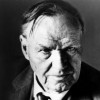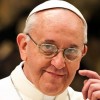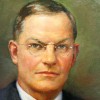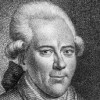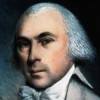I admit that history is filled with religious wars, but let us be careful here, for it is not the multiplicity of religions which has produced these wars, but the spirit of intolerance stirring those who believed themselves to be in a dominant position.
[J’avoue que les histoires sont remplies des guerres de religion : mais, qu’on y prenne bien garde, ce n’est point la multiplicité des religions qui a produit ces guerres, c’est l’esprit d’intolérance, qui animoit celle qui se croyoit la dominante.]
Charles-Lewis de Secondat, Baron de Montesquieu (1689-1755) French political philosopher
Persian Letters [Lettres Persanes], Letter 86, Usbek to Mirza (1721) [tr. Healy (1964), Letter 85]
(Source)
(Source (French)). Alternate translations:
I confess histories are full of religious wars: but do not let us take the thing wrong; it was not the diversity of religious that occasioned these wars; it was the untolerating spirit of that which thought she had the power in her hands.
[tr. Ozell (1760 ed.)]
I acknowledge, that history is full of religious wars: but we must take care to observe, it was not the multiplicity of religions that produced these wars, it was the intolerating spirit which animated that which thought she had the power of governing.
[tr. Floyd (1762), Letter 85]
I acknowledge that history is full of religious wars: but we must distinguish; it is not the multiplicity of religions which has produced wars; it is the intolerant spirit animating that which believed itself in the ascendant.
[tr. Davidson (1891)]
I acknowledge that history is full of religious wars ; but it is an indisputable fact that these wars have not been produced by the multiplicity of religions, but rather by the intolerance of the dominant creed.
[tr. Betts (1897)]
I admit that history is full of wars of religion; but on this point we must be very careful; it is not the multiplicity of religions that produced these wars, but the spirit of intolerance animating the religion that believed itself to be dominant.
[tr. Mauldon (2008), Letter 83]
I admit that history is full of wars of religion. But one must be careful here: these wars were not caused by a multiplicity of religions, but rather by the spirit of intolerance shown by the dominant religion's believers.
[tr. MacKenzie (2014), Letter 85]
Quotations about:
holy war
Note not all quotations have been tagged, so Search may find additional quotes on this topic.
If today you can take a thing like evolution and make it a crime to teach it in the public school, tomorrow you can make it a crime to teach it in the private schools, and the next year you can make it a crime to teach it to the hustings or in the church. At the next session you may ban books and the newspapers. Soon you may set Catholic against Protestant and Protestant against Protestant, and try to foist your own religion upon the minds of men. If you can do one you can do the other. Ignorance and fanaticism is ever busy and needs feeding. Always it is feeding and gloating for more. Today it is the public school teachers, tomorrow the private. The next day the preachers and the lectures, the magazines, the books, the newspapers. After a while, your honor, it is the setting of man against man and creed against creed until with flying banners and beating drums we are marching backward to the glorious ages of the sixteenth century when bigots lighted fagots to burn the men who dared to bring any intelligence and enlightenment and culture to the human mind.
Religious discord has lost her sting; the cumbrous weapons of theological warfare are antiquated: the field of politics supplies the alchymists of our times with materials of more fatal explosion, and the butchers of mankind no longer travel to another world for instruments of cruelty and destruction. Our age is too enlightened to contend upon topics, which concern only the interests of eternity; and men who hold in proper contempt all controversies about trifles, except such as inflame their own passions, have made it a common-place censure against your ancestors, that their zeal was enkindled by subjects of trivial importance; and that however aggrieved by the intolerance of others, they were alike intolerant themselves. Against these objections, your candid judgment will not require an unqualified justification; but your respect and gratitude for the founders of the State may boldly claim an ample apology. The original grounds of their separation from the church of England, were not objects of a magnitude to dissolve the bonds of communion; much less those of charity, between Christian brethren of the same essential principles.
But how has it happened that millions of fables, tales, legends have been blended with both Jewish and Christian revelation that have made them the most bloody religion that ever existed?
The Lord created us in His image and likeness, and we are the image of the Lord, and He does good and all of us have this commandment at heart: do good and do not do evil. All of us. “But, Father, this is not Catholic! He cannot do good.” Yes, he can. He must. Not can: must! Because he has this commandment within him. Instead, this “closing off” that imagines that those outside, everyone, cannot do good is a wall that leads to war and also to what some people throughout history have conceived of: killing in the name of God. That we can kill in the name of God. And that, simply, is blasphemy. To say that you can kill in the name of God is blasphemy.
Francis I (b. 1936) Argentinian Catholic Pope (2013- ) [b. Jorge Mario Bergoglio]
Homily (22 May 2013)
(Source)
It would be almost unbelievable, if history did not record the tragic fact that men have gone to war and cut each other’s throat because they could not agree as to what was to become of them after their throats were cut. Many sins have been committed in the name of religion. Alas! the spirit of proscription is never kind. It is the unhappy quality of religious disputes that they are always bitter. For some reason, too deep to fathom, men contend more furiously over the road to heaven, which they cannot see, than over their visible walks on earth.
Most Mens Anger about Religion is as if two Men should quarrel for a Lady they neither of them care for.
George Savile, Marquis of Halifax (1633-1695) English politician and essayist
“Religion,” Political, Moral, and Miscellaneous Thoughts and Reflections (1750)
(Source)
Is it not strange that men are so keen to fight for a religion and so unkeen to live according to its precepts?
Every religion consists of moral precepts, & of dogmas. In the first they all agree. All forbid us to murder, steal, plunder, bear false witness Etc. and these are the articles necessary for the preservation of order, justice, & happiness in society. In their particular dogmas all differ; no two professing the same. These respect vestments, ceremonies, physical opinions, & metaphysical speculations, totally unconnected with morality, & unimportant to the legitimate objects of society. Yet these are the questions on which have hung the bitter schisms of Nazarenes, Socinians, Arians, Athanasians in former times, & now of Trinitarians, Unitarians, Catholics, Lutherans, Calvinists, Methodists, Baptists, Quakers Etc. Among the Mahometans we are told that thousands fell victims to the dispute whether the first or second toe of Mahomet was longest; & what blood, how many human lives have the words ‘this do in remembrance of me’ cost the Christian world!
We all agree in the obligation of the moral precepts of Jesus: but we schismatize & lose ourselves in subtleties about his nature, his conception maculate or immaculate, whether he was a god or not a god, whether his votaries are to be initiated by simple aspersion, by immersion, or without water; whether his priests must be robed in white, in black, or not robed at all; whether we are to use our own reason, or the reason of others, in the opinions we form, or as to the evidence we are to believe. It is on questions of this, & still less importance, that such oceans of human blood have been spilt, & whole regions of the earth have been desolated by wars & persecutions, in which human ingenuity has been exhausted in inventing new tortures for their brethren.
It is time then to become sensible how insoluble these questions are by minds like ours, how unimportant, & how mischievous; & to consign them to the sleep of death, never to be awakened from it. The varieties in the structure & action of the human mind, as in those of the body, are the work of our creator, against which it cannot be a religious duty to erect the standard of uniformity.
Thomas Jefferson (1743-1826) American political philosopher, polymath, statesman, US President (1801-09)
Letter to James Fishback [draft] (27 Sep 1809)
(Source)
Jefferson seriously dialed back his actual response, though he kept both in his files; the final letter read, in this passage:
The interests of society require the observation of those moral precepts only in which all religions agree, (for all forbid us to murder, steal, plunder, or bear false witness.) and that we should not intermeddle with the particular dogmas in which all religions differ, and which are totally unconnected with morality. in all of them we see good men, & as many in one as another. The varieties in the structure & action of the human mind as in those of the body, are the work of our creator, against which it cannot be a religious duty to erect the standard of uniformity.
According to the theologians, God, the Father of us all, wrote a letter to his children. The children have always differed somewhat as to the meaning of this letter. In consequence of these honest differences, these brothers began to cut out each other’s hearts. In every land, where this letter from God has been read, the children to whom and for whom it was written have been filled with hatred and malice. They have imprisoned and murdered each other, and the wives and children of each other. In the name of God every possible crime has been committed, every conceivable outrage has been perpetrated. Brave men, tender and loving women, beautiful girls, and prattling babes have been exterminated in the name of Jesus Christ.
Robert Green Ingersoll (1833-1899) American lawyer, agnostic, orator
“Heretics and Heresies” (1874)
(Source)
The purpose of separation of church and state is to keep forever from these shores the ceaseless strife that has soaked the soil of Europe in blood for centuries.
James Madison (1751-1836) American statesman, political theorist, US President (1809-17)
(Spurious)
This has been cited as in an 1803 letter objecting to building churches on government land, but, while not out of keeping with Madison's rhetoric, it has not actually been found in Madison's writings.
Men will wrangle for religion; write for it; fight for it; die for it; anything but — live for it.
Charles Caleb "C. C." Colton (1780-1832) English cleric, writer, aphorist
Lacon: Or, Many Things in Few Words, Vol. 1, § 25 (1820)
(Source)
No loss of flood and lightning, no destruction of cities and temples by hostile forces of nature, has deprived man of so many noble lives and impulses as those which his intolerance has destroyed.


